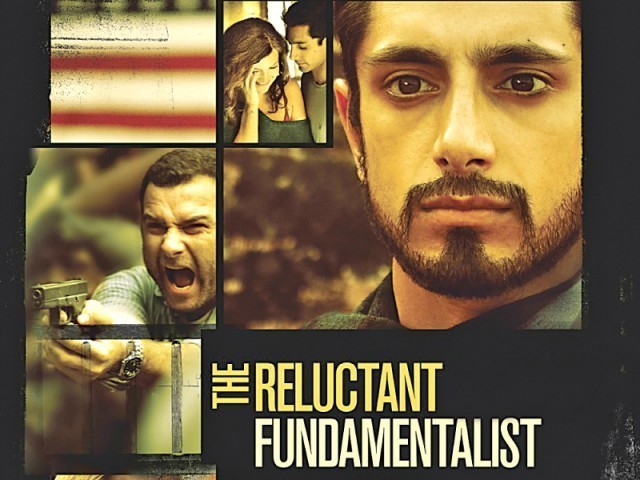The Express Tribune 28 May 2013

The Reluctant Fundamentalist
Set against the social and political upheaval following the infamous 9/11, Mohsin Hamid’s book is skilfully brought to life in the movie The Reluctant Fundamentalist.
Instead of the somewhat stilted, ‘Excuse me, sir, but may I be of assistance?’ with which the book starts, the movie launches straight into old Lahore (sadly, a Lahore recreated and filmed in Delhi, given the potential volatility of the subject), with an electrifying qawali.
And very soon, images of the qawals’ paan stained uvulas are interwoven with disturbing scenes as an American couple on the street is attacked, the man roughly bundled into a car. The screams of his companion as she runs after the speeding car are muffled by the sonorous beat of the devotional music.
Mira Nair, the award winning director was one of nine filmmakers who made short films (11 minutes nine seconds and one frame long) relating to 9/11 soon after the event, so she is not new to the theme.
In The Reluctant Fundamentalist, Nair displays a sensitivity to the medium. By changing the somewhat static setting of the book which is entirely based on a monologue taking place in a local chai khana(tea house) in Lahore, to some deft camera work which follows the main character Changez from Pakistan to the US, Philippines, Turkey and back again, obviously aware that what worked for a book would not work as well for a cinema audience.
Other changes, and there are several, might irk those extremely passionate about the book, but they worked for me.
Riz Ahmed as Changez has the speaking eyes and sensitive face associated with his character, an extremely intelligent young man, capable of carving a more than satisfactory niche for himself in a new country without losing his identity. It is through him that the theme is played out, of America’s role in creating ‘fundamentalists’, whether reluctant or otherwise. Changez embodies the changes wrought on the world stage as a result of this American role, through 9/11 and beyond.
Interestingly, Changez meaning ‘change’ in French was not a deliberate choice, Hamid says.
Kate Hudson (Melissa Gilbert on Junoesque lines) as Erica is magnificent. There is something extremely likeable about Hudson, which once again is most apt, because isn’t there something extremely likeable about the US and its people?
And yet her relationship with Changez falls through, as does his professional life in the US, even though he attains positions that the rest of his class at Princeton can only dream of. When likened to a Janissary, although this comparison is made from a business point of view, Changez applies it to himself as a man working for those who are hostile to him. He resigns from his job, causing his boss Jim(Kiefer Sutherland), to switch uncannily from a fatherly patron to an employer with…did he have fangs, or was I led to imagine it?
Definitely, one is led to see many things, such as the resentment harboured by the people of the third world, who after all are only a handful of them terrorists, against the US. The transformation undergone by Changez, the son of a once wealthy, educated family can be traced to many things, but the revulsion, shock and anger on the actor’s face during an excessively intimate examination by immigration officials at the airport says enough.
Riz Ahmed is a talented actor, but he is also the biggest flaw when towards the end of the movie he gives a speech in Urdu. The unsuitability of an actor clearly not at home in his mother tongue being cast in this role is immediately obvious. The character he portrays has spent almost his entire life in Lahore, the son of an Urdu poet to boot. This flaw is all the more regrettable since that speech did not live up to the rest of the screenplay and could have been dispensed with, its sentiments conveyed by some other means: note for Ami Boghani (who also worked with Nair in ‘The Namesake’) and William Wheeler, who have otherwise done well as screen writers.
The rest of the cast…Om Puri as Abu, and Shaban Azmi as Ammi…have they ever not done a good job?
They’ve certainly done well here, as also Meesha Shafi in her role as the distinctly vampish sister. And Liev Schreiber, who in the book was the man the monologue, was addressed to. For a man whose height probably dictates his every role, he plays the American agent Bobby with immense sensitivity (no pun intended), creating layer upon layer of personality, helping to make the entire movie as worth watching, and thought provoking as the book.
Both the book and the movie are crucial to the debate that should occur regarding the fundamentalism and militancy that besets Pakistan today.
